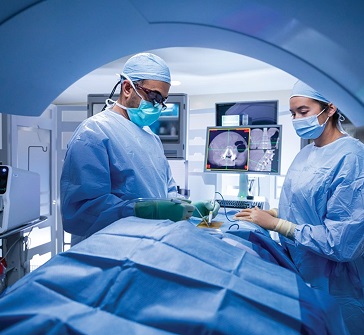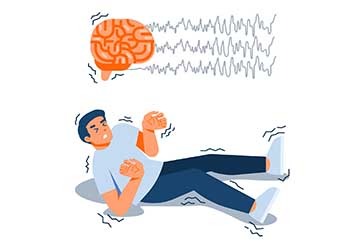 Book Appt.
Book Appt.
 Call Now
Call Now


Neurology is a highly specialized branch of Neuroscience that deals with the management of the entire gamut of diseases, disorders, and malignancies involving both central, as well as peripheral nervous systems. The former comprises the Brain and the Spinal Cord, whereas the latter includes the peripheral nerves and muscles. Neurological problems may range from simple disabilities to complex disorders and can prove to be debilitating, or even life-threatening, without proper care. Neurology focuses on the prevention, diagnosis, assessment, and management of such conditions using different surgical and non-surgical modalities.
Why choose SHALBY Sanar International Hospitals?
Sanar Internationl Hospital brings to you a world-class Neurology Unit, catering to the needs of patients with a wide gamut of diseases and ailments affecting the organs and structures of the nervous system. Our experts use the finest modalities to assess and treat the patients while keeping their safety and satisfaction at the forefront. The comprehensive treatment plans are carefully curated to address the specific needs and requirements of all the patients.
AREAS OF EXPERTISE
You should consider seeing a neurologist if you can relate to any of the following:
A- Various conditions that are diagnosed, assessed, treated, and managed by a neurologist include:
A: Common neurological conditions that can affect kids include:
A-Yes, neurological problems can be treated without surgery in certain cases. In fact, conservative treatments are the first line of approach, and surgery is recommended only when the patient is not responding to the former. Some of the common non-surgical treatment options for neurological ailments include:
A- Blood tests are not generally used as a primary diagnostic modality; however, they can be performed to rule out the possibility of some other medical condition and provide important information that can play a crucial role in diagnosing the patient. It may be performed for the following reasons:
A-There is a wide range of symptoms that can point towards the prevalence of a neurological problem. These include:
Alzheimer’s is a progressive brain disorder that leads to the gradual l...
It is a movement disorder that is marked by the involuntary contraction of mu...
Cerebral Palsy is a term used for various Neurodevelopmental disorders that a...
Headache is a very common problem, marked by throbbing, sharp, or dull pain i...
Parkinson's disease is a progressive Neurological disorder that affects 1...
Essential Tremor is the most common movement disorder that is triggered by di...
Every year, near about 5 million people are diagnosed with epilepsy, across t...
SHALBY Sanar International Hospitals provides extensive medical procedures backed up with our state-of-the-art technology and a team of highly qualified & experienced clinical experts.

Patient from Iraq gets treated by Dr. Harnarayan Singh | SHALBY Sanar International Hospitals

15 year old Patient from Liberia gets treated by Dr Harnarayan Singh | Neurosurgery & Spine Surgery

Mrs. Khalida Khaleel from Iraq Overcomes Degenerative Disc & Grade 1 Spondylolisthesis

Successful Treatment of a Patient from Uzbekistan for Degenerative Disc Disease and Back Syndrome

Surviving Stroke: Bipasha Banerjee's Testimony on Timely Intervention

Successful Intraoperation Neuro Monitoring on patient Hasan from Iraq

Successful removal of Glioma using advanced machines

A multidisciplinary care worked wonders for Ms. Akhtamova from Tajikistan

Treatment for Brain Aneurysm - Al Qumairi Saeed Mohsen Awadh from Yemen
Our doctors pen down their research findings and experiences from time to time. Their words provide deep insight into the latest techniques, technologies and other advancements in healthcare. It provides expert answers to all kinds of health questions for real-life issues.
VIEW ALL




Since the day of its foundation, SHALBY Sanar International Hospitals is committed to provide comprehensive healthcare services. It regularly organizes awareness programs in its premises and encourages outdoor healthcare activities and camps with an intent to put focus on preventive healthcare.
VIEW ALL